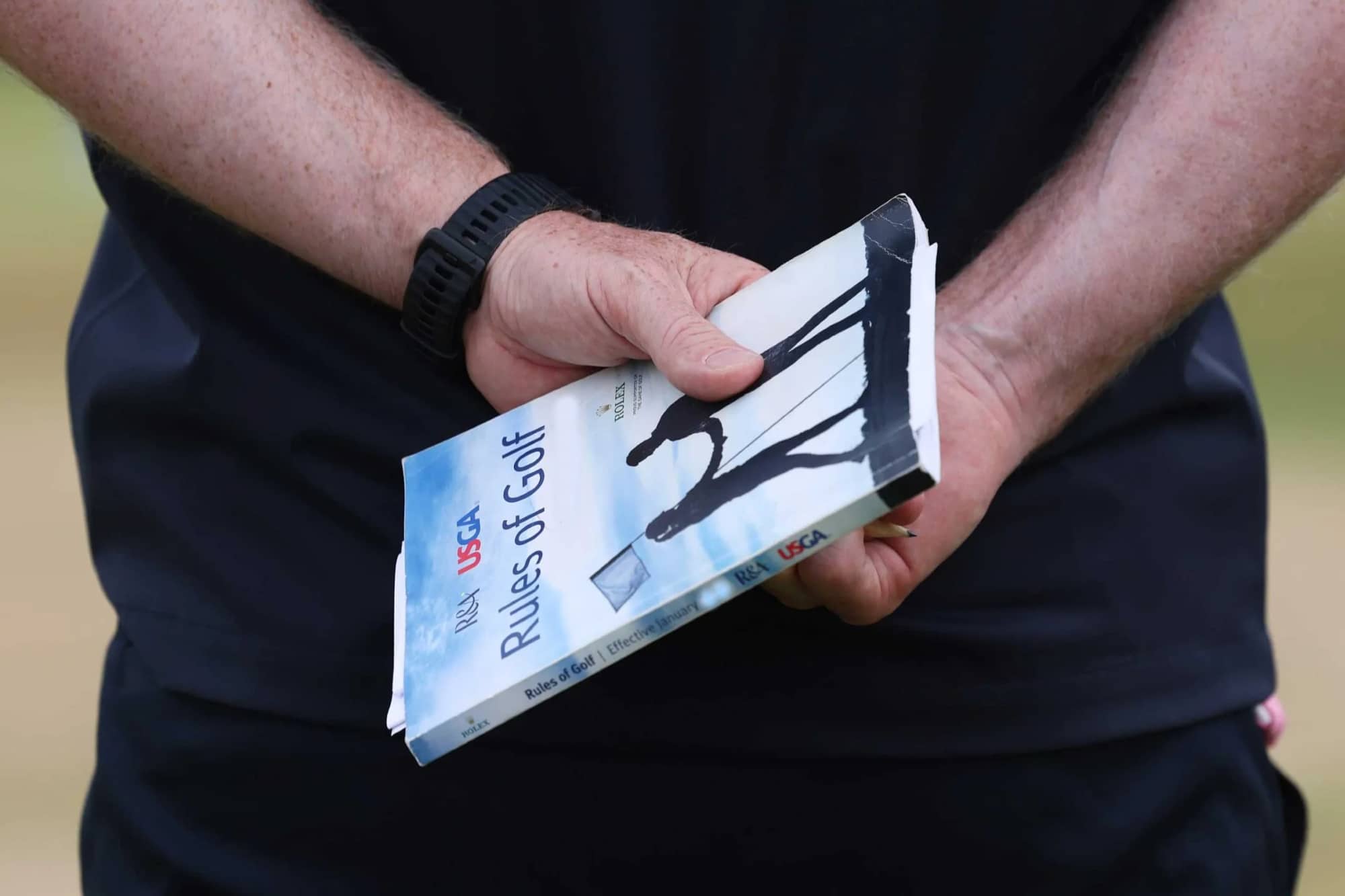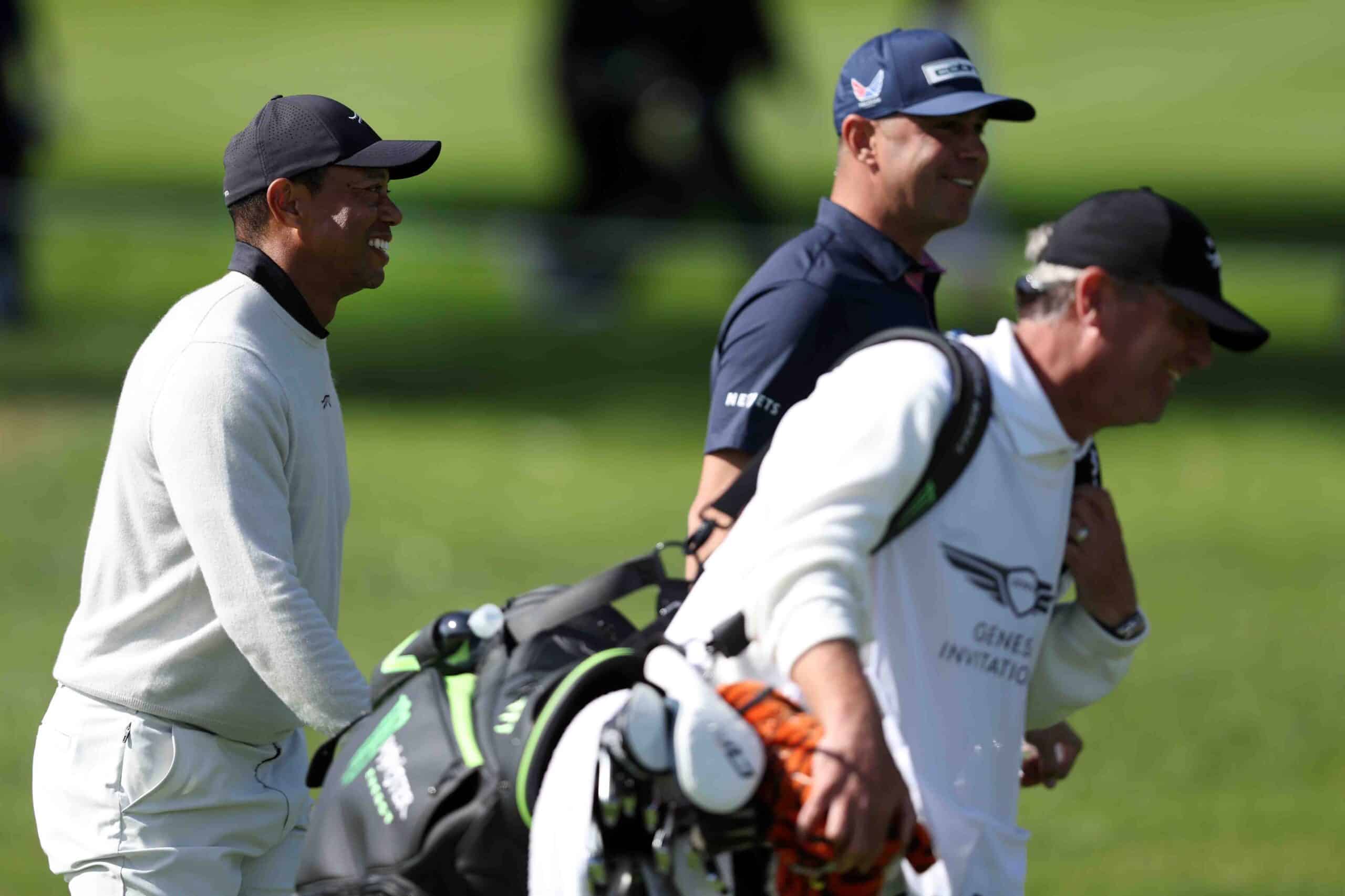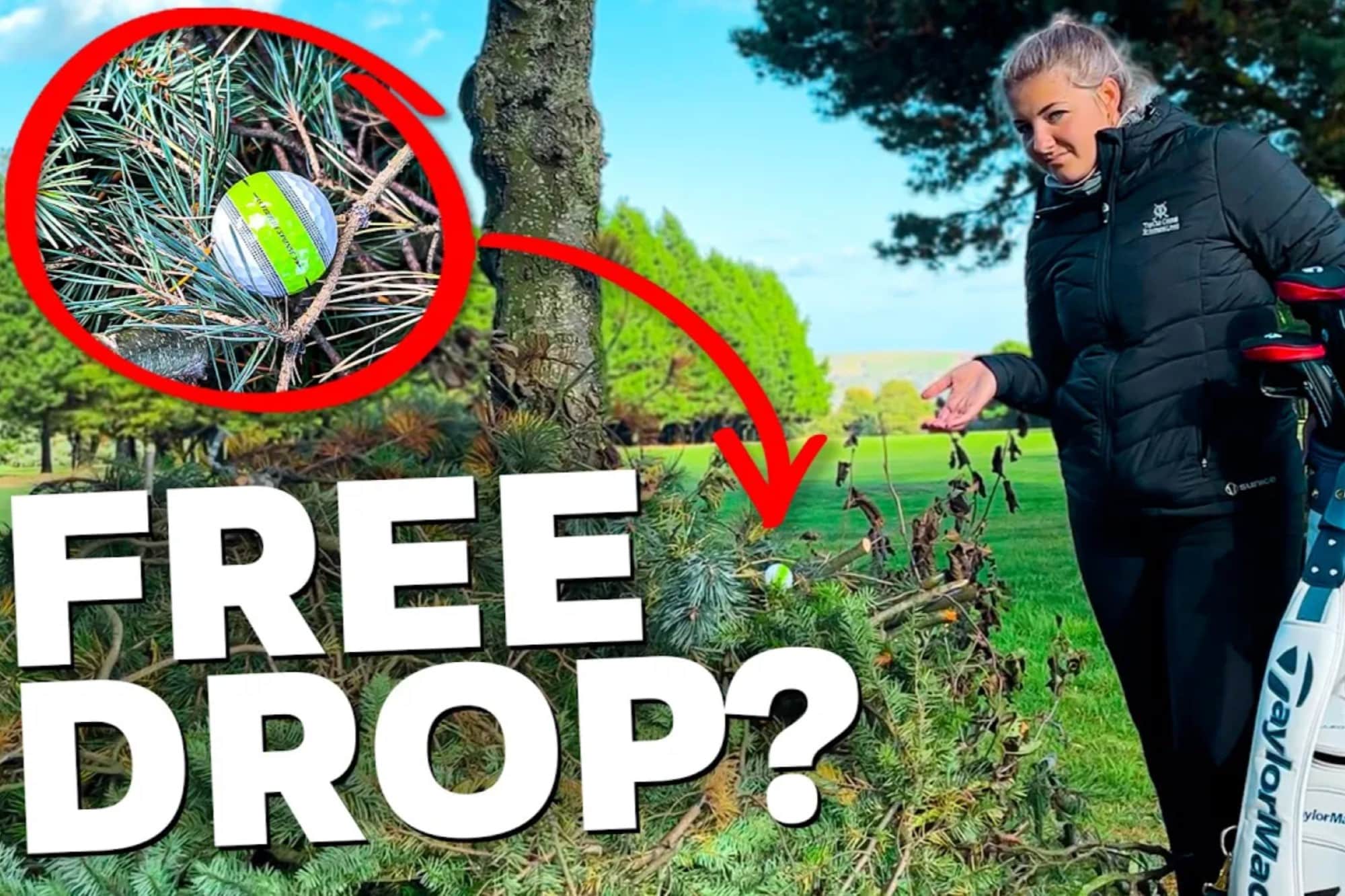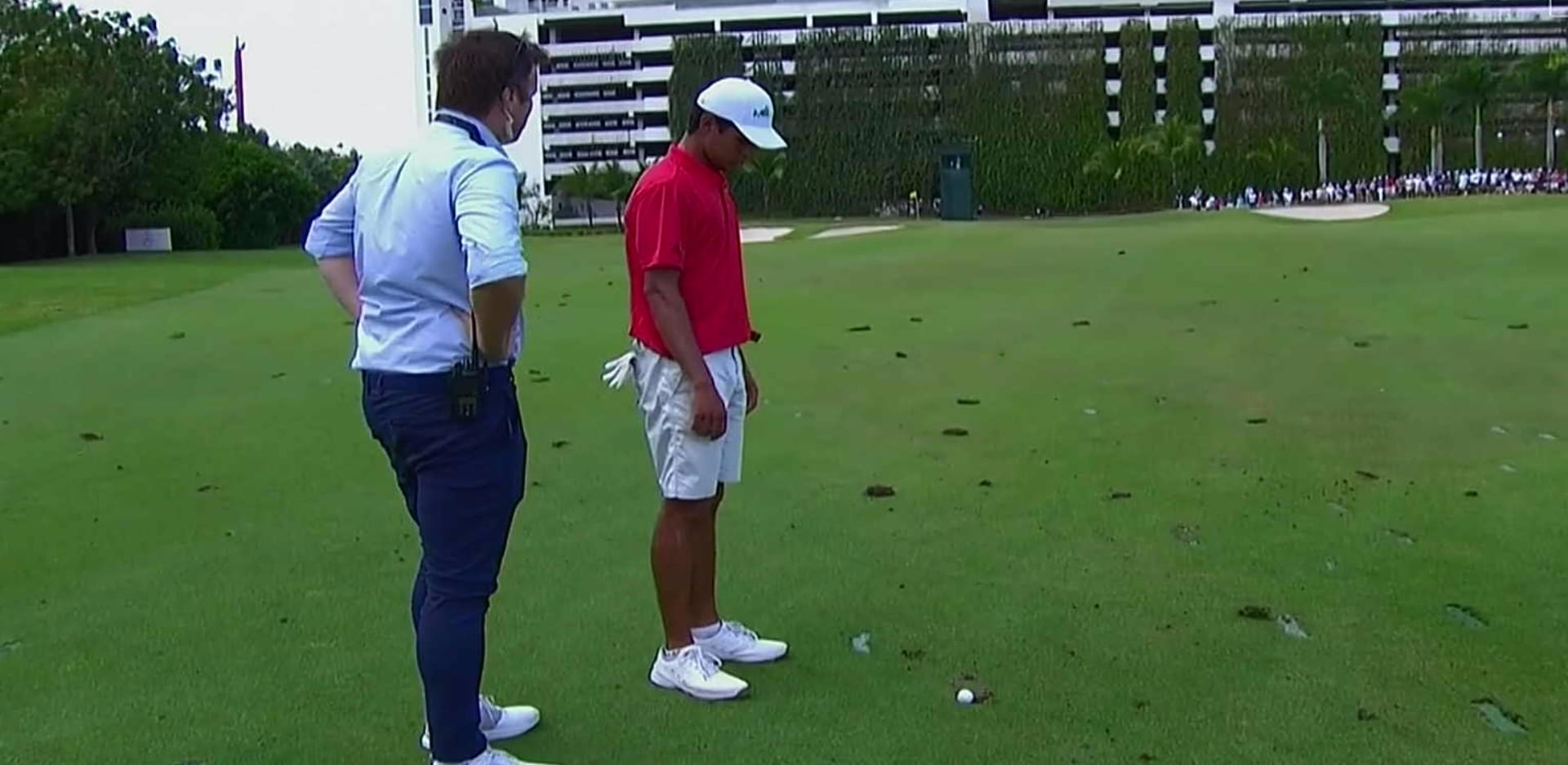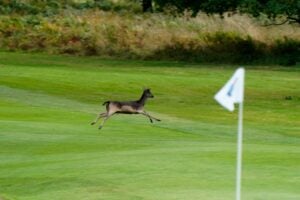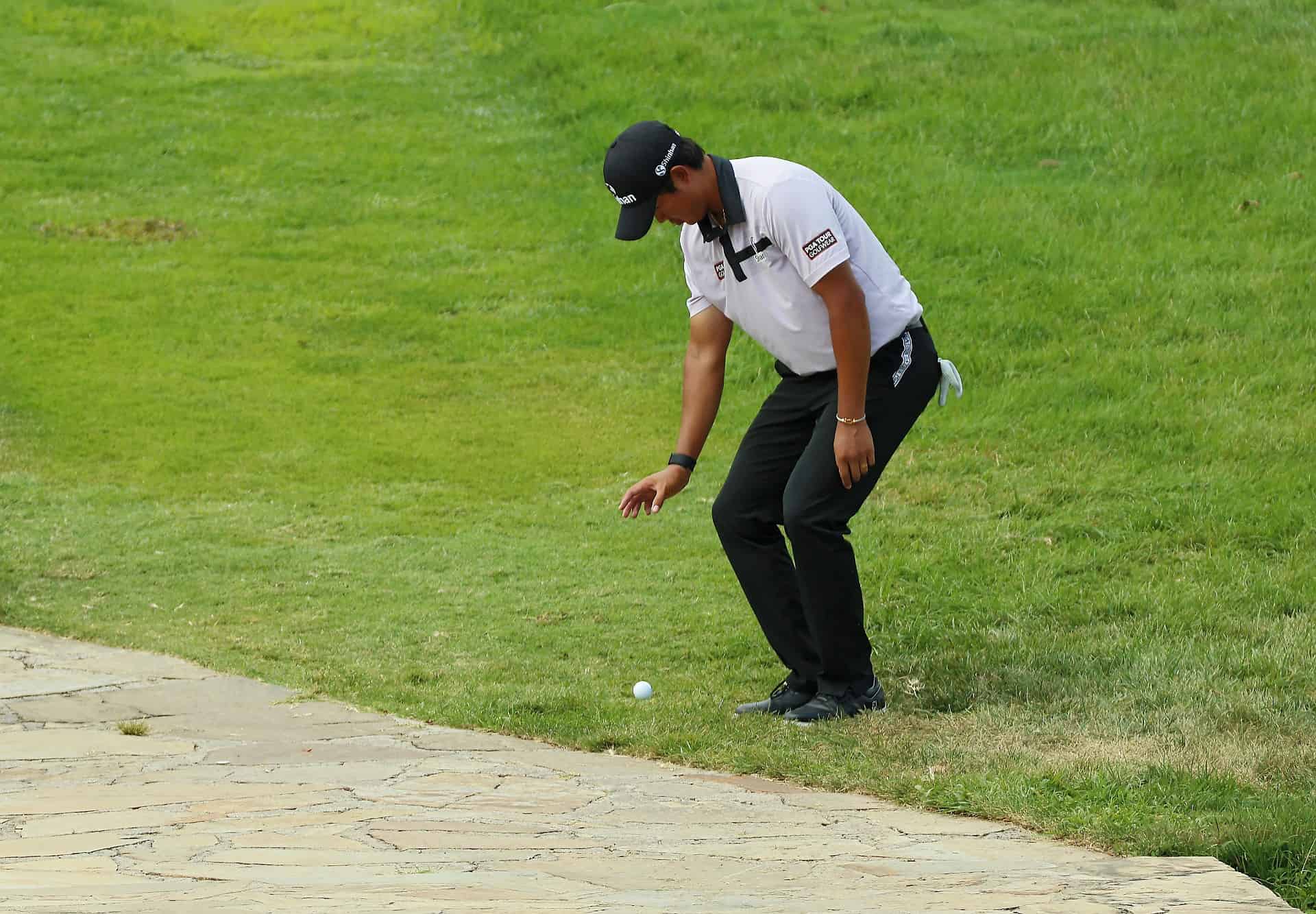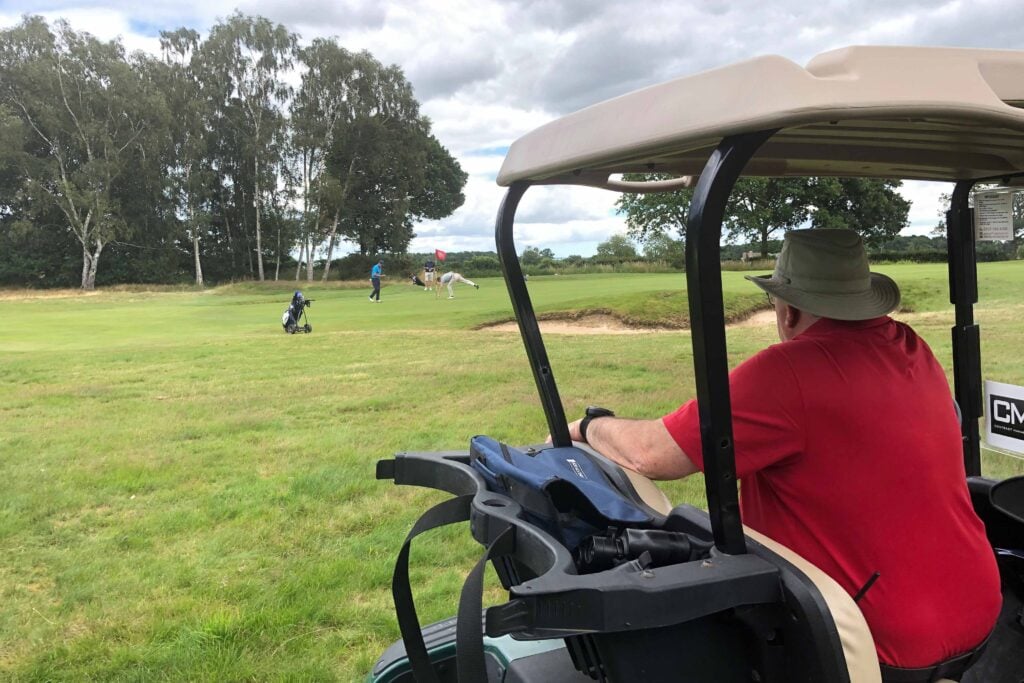
Bring string, buy a watch, and never identify a ball: What I learned shadowing a rules official
They tell me refereeing is 99 per cent watching and 1 per cent panic. As I arrive at the 3rd, though, there’s a player frantically trying to negotiate his way through the inside of a bush.
The clock is ticking. His allotted three minutes pass and, after all that, the ball isn’t even constrained by foliage. It’s been sitting in plain sight the whole time.
Rules are rules, though. Time is up and the player who asks, more in hope than expectation, whether he can hit the now obviously revealed ball is sent up instead to the provisional that is now in play.
Hours pass without even so much as a ball in a penalty area to be consulted upon.
But Fulford, where they are staging the Northern Counties Senior Amateur, has a sting in its long back nine tail.
Now stationed on the 13th, the balls are suddenly going everywhere except the fairway. There are searches, unplayable balls, and some quite sensational golf shots to witness.
It’s enough to leave you breathless. Such is the life of a rules official.
I was at the York course to find out what refereeing is like in the thick of a busy tournament. Back in March, I passed the R&A’s Level 2 Rules of Golf exam and declared my intention to carry my Rule Book into the battle of competition.
But it’s one thing to know the game’s laws and quite another to apply them when you’ve got a player asking you a question and everything you say suddenly matters for real.
So I spent a day in the company of championship referee Paul Jordan-Worrall to see what I could learn. The answer was plenty…
Gear up
Some rules officials prepare for all eventualities and, in a backpack and a small bag that calls the back of his buggy home, there’s not a lot that’s going to catch Paul off guard.
Whether it’s string to measure where the course side points are between out of bounds posts, tweezers (he once had a player with a thorn in their hand after a tricky encounter with a bush), scissors, painkillers, or even an emergency blanket, he’s equipped for almost any question a player could ask him.
It’s not that he needs all this stuff. It’s that he might – and experience has taught him never to underestimate the situations that can arise in a big patch of grass where people are hitting balls with sticks.
Know your Local Rules
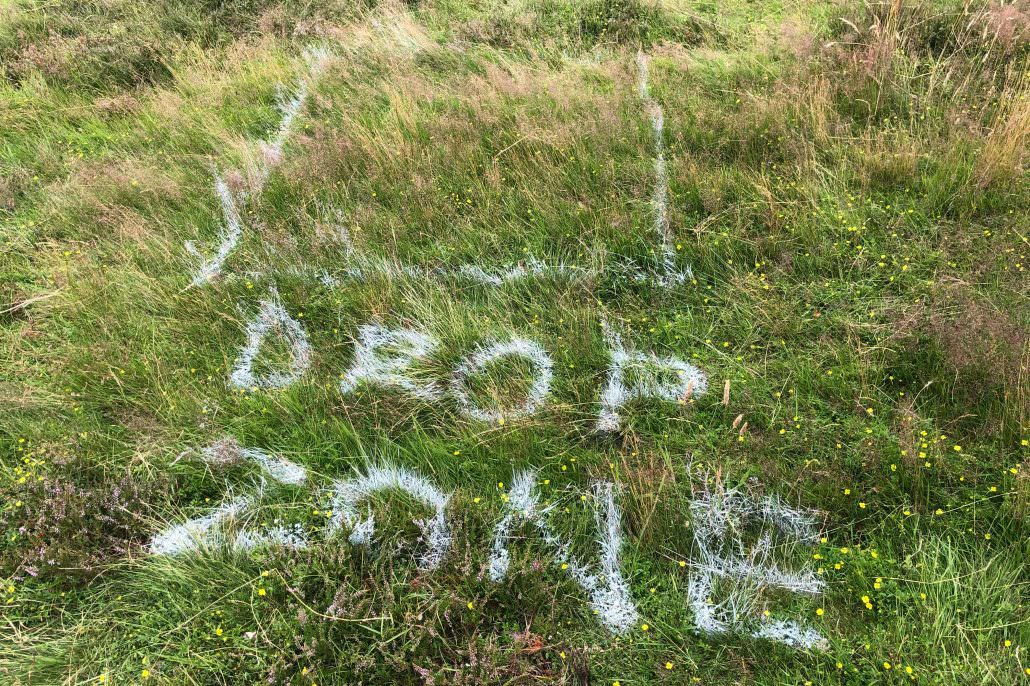
There’s an artificial turf path that runs alongside the left of the 14th at Fulford. You can take relief from a path, right? Not this time. It’s classed as an integral part of the course and competitors had to play it as it lies.
Left of the 9th was also a large area of ground under repair. You could take relief from that, but only in a nearby drop zone.
If the rules official doesn’t know the Local Rules, how are they going to assist the players if they ask?
And if they are unsure they will ask, even though they’re supposed to have read them too. Preparation, long before you even get to the course on tournament day, is as key as what happens during the event.
Colour code the Rules of Golf
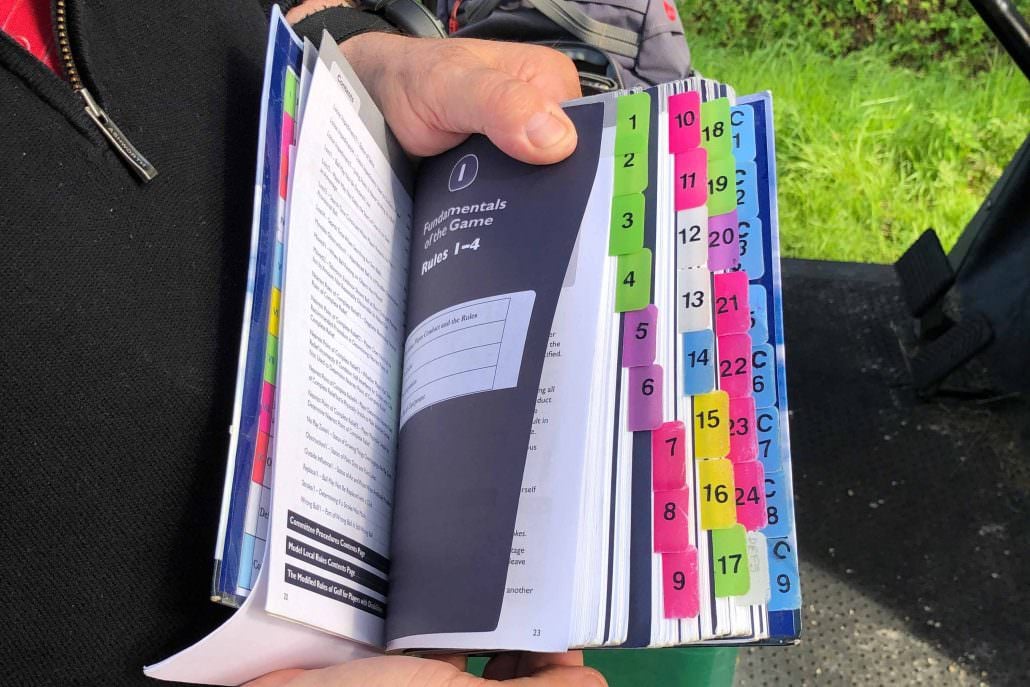
The Official Guide to the Rules of Golf couldn’t be described as slim. It’s a meaty read weighing in at 522-pages long. There are 24 rules, hundreds of interpretations, and committee procedures all in one binder. If you’re on the spot, hunting out a rule, the last thing you want is to be trawling through pages looking for the right section. Paul colour codes and marks all his rule numbers. If he needs to double check something on finding and identifying a ball (Rule 7), he can reach it quickly. He does carry a tablet to access the R&A Rules app. But batteries run down and it’s often easier to show players a printed page. Every second counts.
Never identify a ball
We all do this one out of habit and, for me, it’s going to be one of the toughest things to break.
A player walks over, eyes matching yours in expectant fashion, and says, ‘Is that my ball?’
‘Titleist 4?’ The words are out of my mouth before I’ve even had time to think. It’s just what we do as players.
But what if it wasn’t their ball? What if, despite the odds, it was the same make, same number, but someone else’s? I’ve just helped that golfer play the wrong ball.
Paul’s much more circumspect. “There’s a ball over there,” he replies when asked the same question. Now the onus is on the player to identify it and a potential rules mishap is avoided.
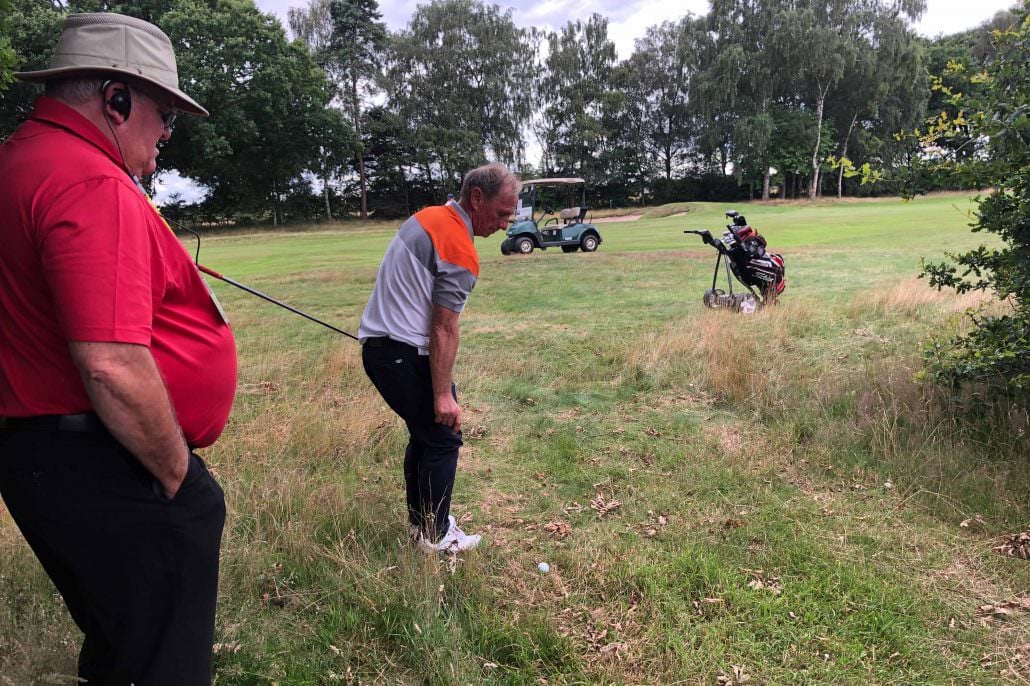
If in doubt, let the player decide
It’s human nature to want to help and we all think we’re doing someone a good turn if they’ve piped one towards the trees and we rush off to start the search. That’s fine if a player hasn’t played a provisional ball.
But if they have, where is it? Do they really want me looking for the first ball? What if it’s in an awful spot and their provisional is right in the middle of the fairway?
You can’t declare a ball lost and there’s nothing to stop people going to look for it. But, as a Rules of Golf official, let the player decide what to do first before piling in to find a ball for which they may have had no intention of hunting.
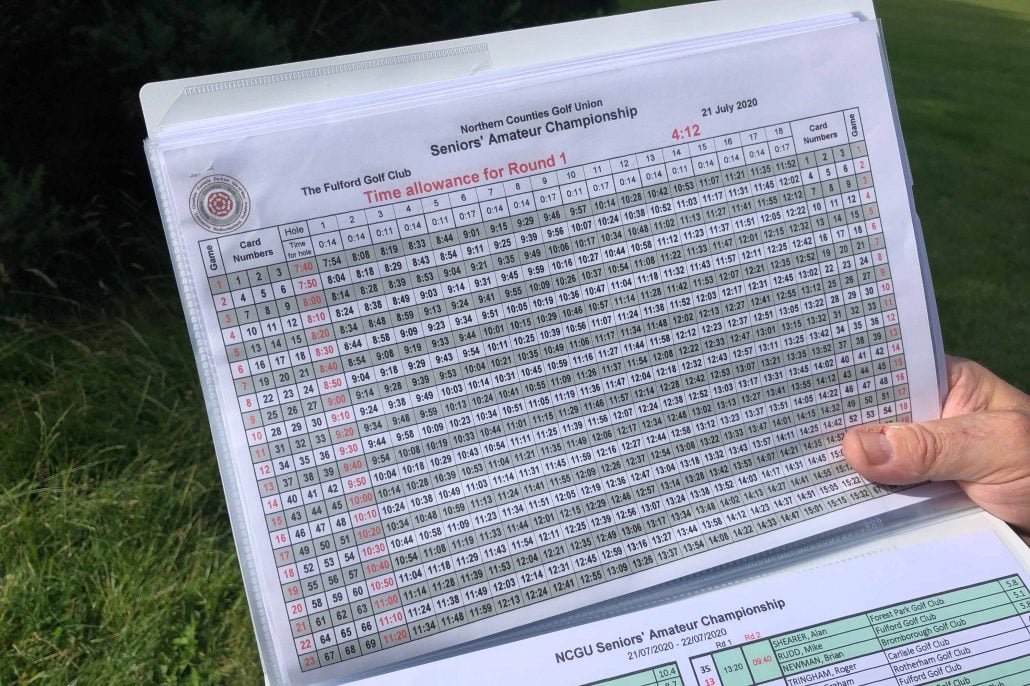
Time and time again
Perhaps a rules official’s most prominent job is to monitor pace of play. Each official on the course has a timing sheet and the numbers correspond to where each group should be at any given moment during the course of their rounds.
Sometimes, the natural pace of play will be faster than scheduled, or bad weather can slow things up, but groups are always expected to maintain a position on the course that is at the starting interval behind the group in front.
If they’re not, and don’t have a good reason for a delay, then they’re going to be asked to get a move on. It’s a request at first and, on the occasions I see it in action, it’s enough to get players shifting a little quicker.
But those who don’t heed the initial warning will be put ‘on the clock’. A stopwatch Paul wears on his wrist – it’s easier to look towards your hand than fiddling to grasp something hanging round your neck – is going to be an essential purchase.
Are you interested in learning more about the Rules of Golf and perhaps being a Rules official? Check out the R&A’s online rules academy.
- Return of the rakes and a DQ risk for touching flags: Adapting the Rules of Golf for an elite amateur event
- Rules of Golf explained: My ball struck a buggy and landed in a bunker – can I play it again?
- R&A end controversial golf ball debate with new competition guidelines
Follow NCG on Twitter, Facebook and Instagram – and don’t forget to subscribe to our YouTube channel for the latest equipment and golf course reviews and exclusive interviews.
Steve Carroll

A journalist for 25 years, Steve has been immersed in club golf for almost as long. A former club captain, he has passed the Level 3 Rules of Golf exam with distinction having attended the R&A's prestigious Tournament Administrators and Referees Seminar.
Steve has officiated at a host of high-profile tournaments, including Open Regional Qualifying, PGA Fourball Championship, English Men's Senior Amateur, and the North of England Amateur Championship. In 2023, he made his international debut as part of the team that refereed England vs Switzerland U16 girls.
A part of NCG's Top 100s panel, Steve has a particular love of links golf and is frantically trying to restore his single-figure handicap. He currently floats at around 11.
Steve plays at Close House, in Newcastle, and York GC, where he is a member of the club's matches and competitions committee and referees the annual 36-hole scratch York Rose Bowl.
Having studied history at Newcastle University, he became a journalist having passed his NTCJ exams at Darlington College of Technology.
What's in Steve's bag: TaylorMade Stealth 2 driver, 3-wood, and hybrids; TaylorMade Stealth 2 irons; TaylorMade Hi-Toe, Ping ChipR, Sik Putter.


